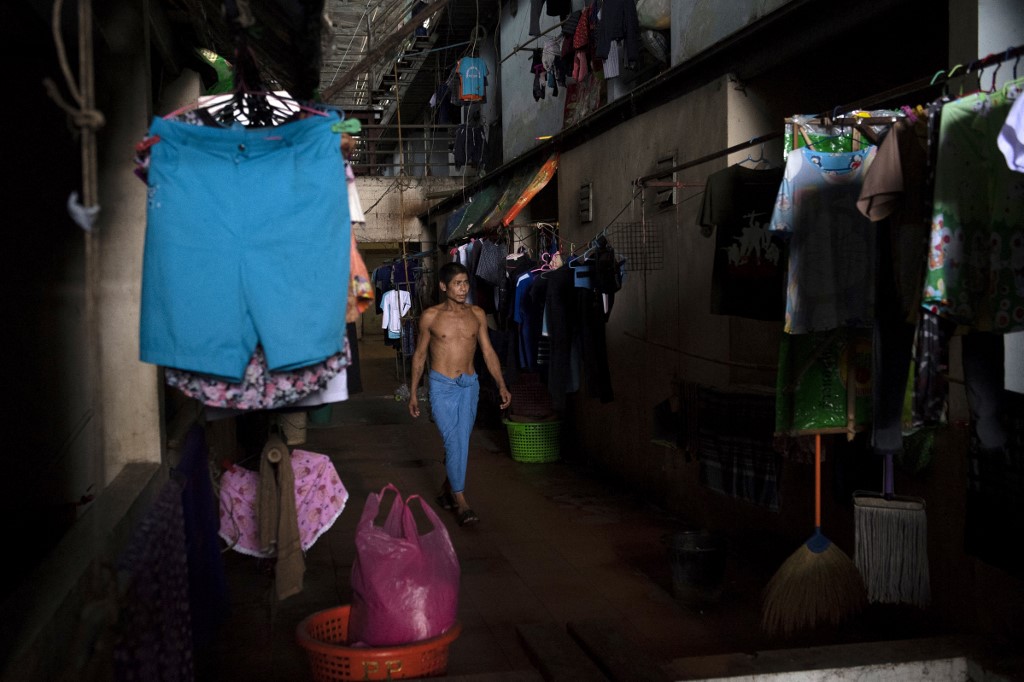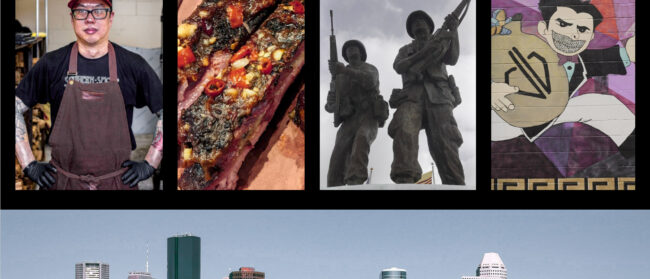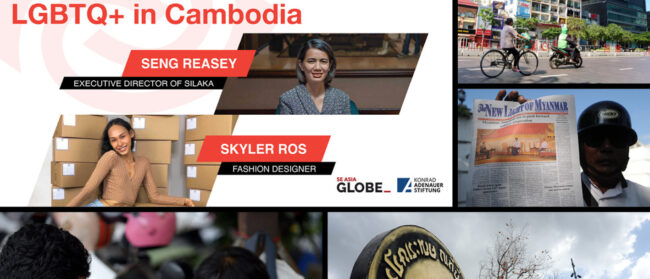The Thai government had to have seen the data. The United Nations put together a socio-economic impact assessment of Covid-19 in Thailand back in October of last year. It warned of glaring threats to the most at-risk populations – migrant workers, the elderly, the urban poor, informal workers and more.
Just one of many vulnerability assessments, it was prepared in partnership with the National Economic and Social Development Council (NESDC). Officials should have been prepared for the worst and responded early, but sadly they didn’t.
Back in May, Thailand detected its first domestically-transmitted cases of the highly-infectious Delta variant among construction workers in Bangkok, and out of 409 worker camps where more than 62,000 workers live, half of them are migrant labourers. As the UN report and similar documents show, migrant workers are particularly vulnerable. In 2019, there were more than three million registered migrant workers in the country, mostly from neighbouring Laos, Cambodia, and Myanmar. While as many as 500,000 returned to their home countries at the start of the pandemic, those who remain in the country do not have the right to healthcare or other forms of social safety like paid sick leave. Many are completely undocumented.
Invisibility and inequality are at the heart of Thailand’s failure to stop the spread of Covid-19. Migrant workers represent a prime example – and the evidence is overwhelming.
When large clusters of infection spread through Samut Sakhon province in December of last year, migrant workers were the most affected. While it may have started with a 67-year-old Thai prawn seller at Mahachai seafood market, infections jumped to four the next day, and in less than a week to almost 700, most being migrant workers from Myanmar. That seafood market employs just a fraction of the 400,000 migrants that work in seafood markets or processing plants across the country.
At the time, Thailand’s Health Minister Anutin Charnvirakul was quick to put the blame squarely on the shoulders of migrants, without offering a sliver of proof. Thai Prime Minister Prayut Chan-o-cha, in a televised address around the same time, claimed that the coronavirus was brought into Thailand by migrants from Myanmar, who he said “brought much grief to the country” – a claim that also lacked evidence. Statements from the upper echelon of the Thai government fuel anti-Burmese sentiment in Thailand, which has increased since the December 2020 outbreak.
In March, Thailand’s Labour Minister Suchart Chomklin said discussions were underway with the Social Security Board about the possibility of inoculating as many as 2.3 million migrant workers that are covered by the country’s social security scheme, at a cost of about 3 billion baht. Migrant workers, according to the Ministry, were so vital that they could have received their vaccinations before that of the Thai general public.
Of course, it never transpired. Months later, there has been no announcement about how many migrants, if any, will be included in the vaccination programme. There are many more that do not qualify under the social security scheme, as many are undocumented and are a part of Thailand’s vast informal sector.
This past June, the Cabinet was forced to extend the June 16 deadline for testing migrant workers for Covid-19, because medical workers were simply overwhelmed and didn’t have the time to test them. Amid struggles to curb the current wave of Covid-19 infections, Thai Prime Minister Prayut Chan-o-cha recently announced a one-month lockdown of camps where construction workers live. Construction workers, a mix of both Thai and migrant workers, have been isolated in camps in Bangkok and five other neighbouring provinces.
While Thailand has more than 100 virus clusters that contain large communities of migrant workers, they also appear relatively invisible to authorities. In late June for example, a group of Covid-infected Cambodian migrant workers pleaded with the government to provide them with medical treatment. Among the infected are children, some younger than nine months, each living in plastic tents in Bangkok’s Rangsit area. They begged for a hospital bed for the children, but were rejected, victims of Thailand’s lack of bed capacity. In Mae Sot, 600 migrant workers who contracted the virus struggle to buy food and medicine due to the government’s lockdown.

Inequality and public attitudes also play a role. The International Labour Organization notes that while migrants are responsible for as much as 6.6% of Thailand’s GDP, public attitudes towards them are decidedly negative.
A recent ILO study in collaboration with UN Women found that 53% of Thais surveyed believe the country does not need low-skilled migrant labor, while 40% believe migrant workers are a drain on the Thai economy. These negative attitudes facilitate and nurture structural inequalities, such as exclusion from access to public services and generating public support for legislation that unfairly targets migrants for social exclusion – including the denial of wages on par with that of Thai nationals.
Migrant workers have for too long been the victims of hateful rhetoric and poor public policy. They have been scapegoated by ignorant politicians and been on the short side of vaccine inequality
Covid-19 has put more than 7 million jobs at risk in Thailand, from complete dismissal to reduced working hours or wages. And according to the UN, 21 million people in total are vulnerable to livelihood losses. Recently the government announced sweeping new restrictions in Bangkok to combat the spread of the virus. Over the course of thirty days, restaurant dine-ins will be banned in the city as well as five surrounding provinces. Shopping malls will close early and activities that involve a gathering of more than 20 people will be prohibited. While household income is expected to fall across all sectors of the economy, the biggest hits will come from unskilled labour, of which migrant workers compose a sizable percentage.
Inequalities prior to the pandemic exacerbate inequalities during the pandemic. Because of social exclusion in education and healthcare, migrants in Thailand are at a disadvantage in seeking Covid-related health services. This can be attributed to already low levels of literacy in Thai, their near exclusion from emergency response plans, as well as social and historical factors, such as fear of deportation, discrimination, and xenophobia. Their previous inequalities, such as living conditions and lack of access to water and sanitation facilities, make social distancing and basic prevention like handwashing difficult.
Covid-19 is causing widespread disruption to the Thai economy and in the Asia-Pacific region, nearly 90 million people will eventually move back into poverty. Some countries in the region have seen their weakest economic performance since 1990. The United Nations already laments the loss of progress in achieving the Sustainable Development Goals by 2030.
Thailand needs to take measures to include vulnerable populations into their emergency response plans, increase economic assistance for marginalised populations, and target persistent social and economic inequalities in the post-pandemic recovery. Migrant workers have for too long been the victims of hateful rhetoric and poor public policy. They have been scapegoated by ignorant politicians and been on the short side of vaccine inequality.
Migrant workers contribute significantly to Thailand’s economy and culture. Their victimisation must end.
Mark S. Cogan is an Associate Professor of Peace and Conflict Studies at Kansai Gaidai University in Osaka, Japan. He is a former communications specialist with the United Nations in Southeast Asia, Sub-Saharan Africa, and the Middle East.


